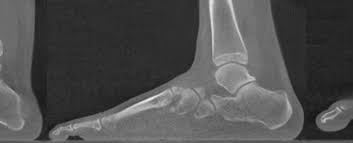
Breaking News
 The Gaza Gambit: Trump's USD1 And Asset Tokens Will Provide Cradle-To-Grave Financial System
The Gaza Gambit: Trump's USD1 And Asset Tokens Will Provide Cradle-To-Grave Financial System
 Huh? Trump Family Is Jockeying To Replace The Dollar Globally As Their Wealth Soars
Huh? Trump Family Is Jockeying To Replace The Dollar Globally As Their Wealth Soars
 The Gaza Plan's 'Sick Kind of Detachment' and its Dangers for America
The Gaza Plan's 'Sick Kind of Detachment' and its Dangers for America
 Project Artichoke: 70 Years Ago, CIA Discussed Hiding Mind-Control Drugs in Vaccines
Project Artichoke: 70 Years Ago, CIA Discussed Hiding Mind-Control Drugs in Vaccines
Top Tech News
 New Spray-on Powder Instantly Seals Life-Threatening Wounds in Battle or During Disasters
New Spray-on Powder Instantly Seals Life-Threatening Wounds in Battle or During Disasters
 AI-enhanced stethoscope excels at listening to our hearts
AI-enhanced stethoscope excels at listening to our hearts
 Flame-treated sunscreen keeps the zinc but cuts the smeary white look
Flame-treated sunscreen keeps the zinc but cuts the smeary white look
 Display hub adds three more screens powered through single USB port
Display hub adds three more screens powered through single USB port
 We Finally Know How Fast The Tesla Semi Will Charge: Very, Very Fast
We Finally Know How Fast The Tesla Semi Will Charge: Very, Very Fast
 Drone-launching underwater drone hitches a ride on ship and sub hulls
Drone-launching underwater drone hitches a ride on ship and sub hulls
 Humanoid Robots Get "Brains" As Dual-Use Fears Mount
Humanoid Robots Get "Brains" As Dual-Use Fears Mount
 SpaceX Authorized to Increase High Speed Internet Download Speeds 5X Through 2026
SpaceX Authorized to Increase High Speed Internet Download Speeds 5X Through 2026
 Space AI is the Key to the Technological Singularity
Space AI is the Key to the Technological Singularity
 Velocitor X-1 eVTOL could be beating the traffic in just a year
Velocitor X-1 eVTOL could be beating the traffic in just a year
Experimental study speeds up bone healing with 2 common medications

Only demonstrated in animals at this stage, the researchers suggest clinical trials could progress rapidly considering the drugs have already been demonstrated as safe in humans.
"The body repairs itself all the time," says corresponding author on the study Sara Rankin. "We know that when bones break they will heal, and this requires the activation of stem cells in the bone. However, when the damage is severe, there are limits to what the body can do of its own accord."
A great deal of current research is focusing on mesenchymal stem cell (MSC) therapies. MSCs are a type of adult stem cell that can grow into a variety of different cell types including muscle, fat or bone. Many current MSC treatments in development involve extracting a small number from a patient, growing them in laboratory conditions, then injecting them back into the patient.



